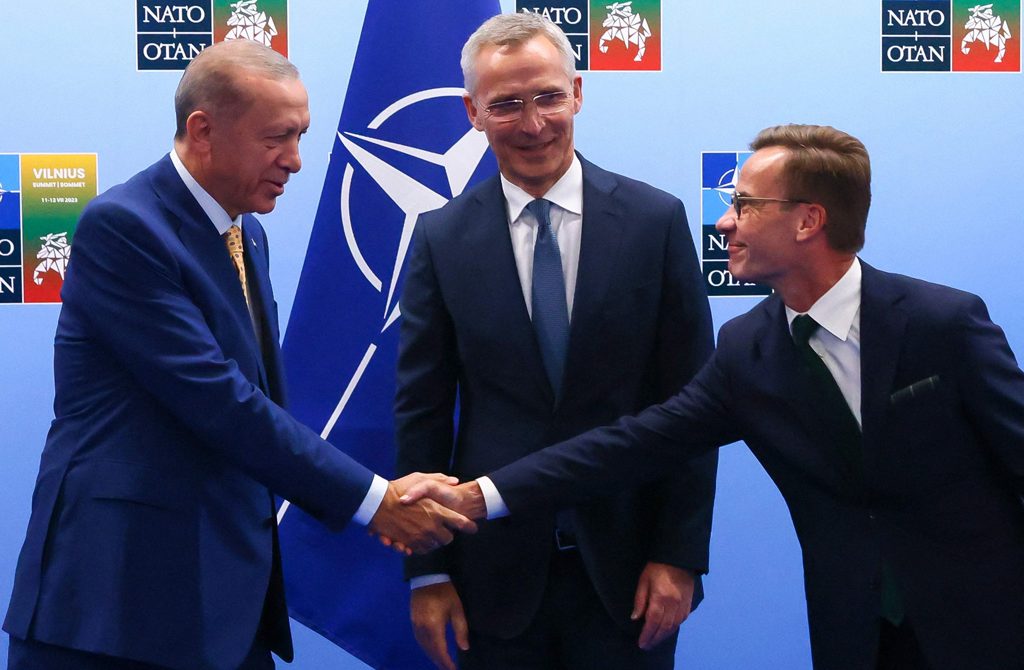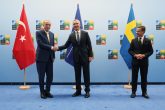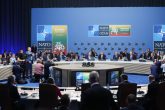Türkiye and its Western allies within the NATO alliance have been passing through a tense period due to the implications of the Russian-Ukrainian War that erupted in February 2022. After Russia’s invasion of Ukraine, the European countries close to Russia have perceived a threat from Moscow. Therefore, large-scale measures were taken by these countries and their allies in the West. Within this context, the NATO alliance and its enlargement policy have come to prominence.
Two northern European countries, namely Finland and Sweden, have declared to become members of the alliance. The membership process of these two countries has been quite problematic mainly due to the differing perspectives of the member states. The most important challenge has come from Türkiye, which claimed that the two candidate countries are not sensitive to the national security of Türkiye. Accordingly, Ankara has put some conditions for these two countries.
As a reaction to Türkiye’s move, most Western countries have voiced their concerns toward Türkiye and begun to directly and/or indirectly threaten Türkiye for blocking these two countries. Larger Western countries have begun to put conditions on their bilateral relations with Türkiye. For instance, the United States has linked the purchase of F-16 jets with Sweden’s membership bid. However, Türkiye has shown its determination for the protection of its national interests and asked the two candidate states not to support the activities of anti-Turkish terrorist organizations such as the Gülenist Terror Group (FETÖ) and PKK.
Türkiye, Sweden and Finland signed a trilateral agreement at the NATO summit held in Madrid. Türkiye has asked these two countries to take concrete steps for prohibiting the activities of terrorist organizations. Later on, Türkiye considered the steps taken by Finland and lifted its veto. Finland became the 31st member of NATO on April 23 and ended its official neutrality policy.
Since Sweden’s anti-Türkiye policy did not change, Türkiye did not lift its veto for Sweden, which continued to allow anti-Turkish activities within its borders. Although the Swedish government has changed some articles of the Constitution in the struggle against international terrorism, it has not implemented these constitutional changes effectively. Some pro-PKK groups have organized several demonstrations in Stockholm, during which, they have insulted the president of Türkiye.
Going even further, the Swedish government has allowed some racist and anti-Islam persons and groups to insult the sacred symbols of Islam. Not only the Turkish people but also all Muslim peoples around the world were insulted.
With the Turkish-determined policy, many bilateral and multilateral meetings were held to overcome the problem between Türkiye and Sweden. Especially, the mediation of NATO Secretary General Jens Stoltenberg was crucial. The last of these meetings was held one day before the NATO summit in Vilnius. President Recep Tayyip Erdoğan, Stoltenberg and Swedish Prime Minister Ulf Kristersson met in Vilnius to discuss the most recent developments regarding Sweden’s bid.
Turning point
According to the explanations made by the officials from all three sides, Türkiye has finally agreed to send Sweden’s NATO accession protocol to the Turkish Parliament as soon as possible and to work closely with the Assembly to ensure ratification. In return, the Swedish government has agreed to resuscitate Turkish-EU relations. Within this context, Sweden has promised to support the efforts to revive Türkiye’s EU accession process and to help modernize the EU-Türkiye customs union and the visa liberalization between the two sides.
Considering the first reactions to the agreement reached between Türkiye and Sweden, the Vilnius summit can become a turning point in Türkiye-West relations, which have been conflictual for the last decade. Both the Western countries and Türkiye have linked the Swedish accession process with other issues and have approached the problem from a wide perspective. The issue has evolved into an overall subject between Türkiye and Western countries.
On the one hand, improvements are expected in Türkiye-EU relations as promised by Sweden. After meeting with President Erdoğan hours after the Turkish-Swedish meeting, Charles Michels, president of the European Council, pointed out that the two sides have decided to reenergize their relations. In other words, Türkiye has successfully contextualized the issue within the EU framework and has received significant signals from the EU side. Furthermore, it was agreed that Sweden will try to remove any trade or investment sanctions imposed by EU countries against Türkiye. Lastly, Sweden has promised that it will not support the PKK and FETÖ terrorist groups.
On the other hand, just hours ahead of Türkiye’s support for Sweden’s entry into NATO, U.S. officials have declared that they support the provision of F-16 jets to Türkiye. In addition, a U.S. official has declared that his government will continue to support the Türkiye’s EU membership process.
Ice has melted
For now, it is not clear when Sweden will become the 32nd member of the transatlantic alliance, the ice between Türkiye and the West has largely melted. The momentum of bilateral relations is in a positive direction. Still, in line with the logic of the tit-for-tat strategy, we will wait and see in which direction the bilateral relations will proceed. Considering the intensifying global rivalry and the increasing roles of non-Western global powers for the Western countries and the economic vulnerability of Türkiye will force the two sides to improve their relations against the challenges ahead of them.
Since it is almost impossible to revive the old Turkish-Western relations because of the changed global balance of power and changes within the domestic politics of the two sides, a new balance will be attempted in Turkish-Western relations. It seems that the two sides need to make new calculations and bargains in order to solidify their new positions in international politics.



